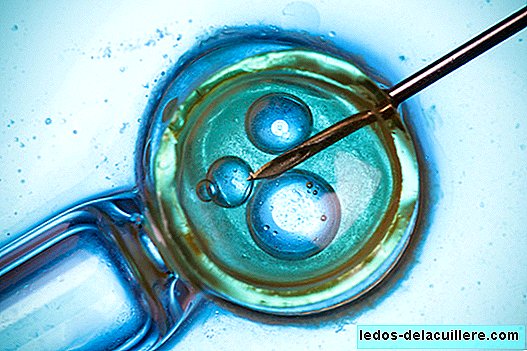
When a woman becomes pregnant, she is more likely to suffer discrimination at work. than other classmates or your classmates. The cases highlighted by the International Labor Organization show that much remains to be done and not only in developing countries but also in those of the "first world".
Who has not heard close cases (when they have not suffered them in the first person) due to impediments when they get a job or move up there, restrictions or conditions before signing a contract, discrimination at the time of becoming "notorious" that the woman is in a state (because they did not want to announce what could happen before), questions in job interviews about the possibility of having children who are afraid of responding ...
We wanted to list figures and data offered by the ILO to show our readers the extent of this discrimination and the different cases that are considered abusive. Letters of commitment not to become pregnant or of resignation in case of being in state, exclusion from the labor market due to lack of legislation, claims for discrimination ...
In Italy, at least 800,000 workers were forced to quit their job because they had become pregnant, in most cases after signing resignation letters with no date when they were hired. These letters were used by companies when they wanted to fire them.
In Kenya, some women are required to sign agreements where they agree not to get pregnant.
In Honduras, women who work in cleaning must regularly undergo pregnancy tests, either to get a job or to keep it.
In Canada, the Saskatchewan Human Rights Commission argues that one in ten claims of discrimination is related to pregnancy.
In the United States, claims for pregnancy-related discrimination increased by 35% in the last decade. Since 2001, the courts of this country have paid $ 150 million for damages in cases of discrimination related to pregnancy.
A UK study found that 22,000 women said they had been harmed at work because they were pregnant or because they had benefited from maternity leave.
Two thirds of young Arab women are excluded from the labor force because of weak legislation on gender discrimination and the lack of solutions for childcare.
On the occasion of the commemoration of today's date, International Day of Violence against Women, the International Labor Organization (ILO), in collaboration with various UN agencies, has developed a package of resources to help organizations, ministries, workers 'and employers' organizations to strengthen and extend maternity protection to women at work.
The objective of this protection that is exposed on the Maternity Protection Resource Package website is to preserve the health of women and the newborn, as well as offer economic security to women and their families.
This can be achieved through maternity leave, cash and medication benefits, workplace health protection, employment protection, non-discrimination and breastfeeding at work.
To this we add some effective and real measures of family and work conciliation, so beneficial but not very widespread and valued. That men also reconcile, and let them know how they do it. And the equalization in economic conditions for men and women.
Yes, it is difficult, but we are on the road and with proposals such as the Maternity Protection Resource Package that we wanted to make visible today, it is possible. We need greater social awareness and political commitment to that pregnant women are not discriminated against in their jobs, but protected.












